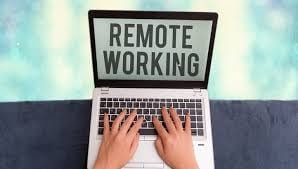Electronic placement levels the playing field in a tough market
Marcus Meredith – Head of Political Violence and Terrorism, Geo Specialty, Ardonagh Group
“Electronic placement has been a game changer, I don’t know how we would have coped without it” commented Marcus Meredith, who leads the Political Violence and Terrorism proposition for Managing General Agent, Geo Underwriting. “As an MGA, we are more used to working remotely, we don’t use as much shoe leather as brokers going into the Room, but we still do a lot face to face meetings to bridge the gap between brokers and specialist underwriters. PPL has helped to level the playing field; as brokers find it as easy to deal with us via our electronic trading platforms without needing to be in EC3”.
 The terrorism market has seen some drop in demand with the onset of the Covid-19 pandemic. Marcus continued “We have definitely seen new business fall away in recent weeks, with cancellation requests and some lapses, particularly in the hospitality sector It is understandable in many ways; as this is often a discretionary purchase and businesses are currently under so much pressure, seeing a sharp if not complete fall in BI, so where the cover is not mandatory it is not a surprise as it is usually one of the first covers to go during cost cutting. The irony is that the perils that we insure against often finds a fertile breeding ground during periods of recession and also social change, which we are seeing during lockdown, so it is likely that there will be an increased political upheaval following an easing of restrictions”.
The terrorism market has seen some drop in demand with the onset of the Covid-19 pandemic. Marcus continued “We have definitely seen new business fall away in recent weeks, with cancellation requests and some lapses, particularly in the hospitality sector It is understandable in many ways; as this is often a discretionary purchase and businesses are currently under so much pressure, seeing a sharp if not complete fall in BI, so where the cover is not mandatory it is not a surprise as it is usually one of the first covers to go during cost cutting. The irony is that the perils that we insure against often finds a fertile breeding ground during periods of recession and also social change, which we are seeing during lockdown, so it is likely that there will be an increased political upheaval following an easing of restrictions”.
However, there are still buyers out there and many are looking to access significant chunks of capacity. “They can find us easily on PPL” said Marcus “and hopefully at the end of the day, the client will benefit from lower costs as electronic placement become more widespread.
Placement that is the issue but the negotiation that gets you there is” continued Marcus. “Relationships are the soul of our industry and Skype or Teams provide a suitable platform for meetings and are better than nothing, but it’s still much harder to read the body language and look someone in the eye on a screen.
Another concern for Marcus is the long-term effects on career development of an extended period of remote working. “It is really important that we don’t forget that internal relationships need care and attention when we are all working apart. I worry that not being physically close to colleagues could mean we lose some part of our shared sense of purpose. We also lose out on sharing our experiences by seeing what is going on around us and by learning from others, especially those that are new to the market. I believe that a lot of this is picked up by osmosis, looking at role models, learning by over-hearing and watching how negotiations take place etc. It’s great that we have the support of digital tools, and some habits should not go back to “normal” as the lockdown lifts, but London will always need some element of face to face trading.”
